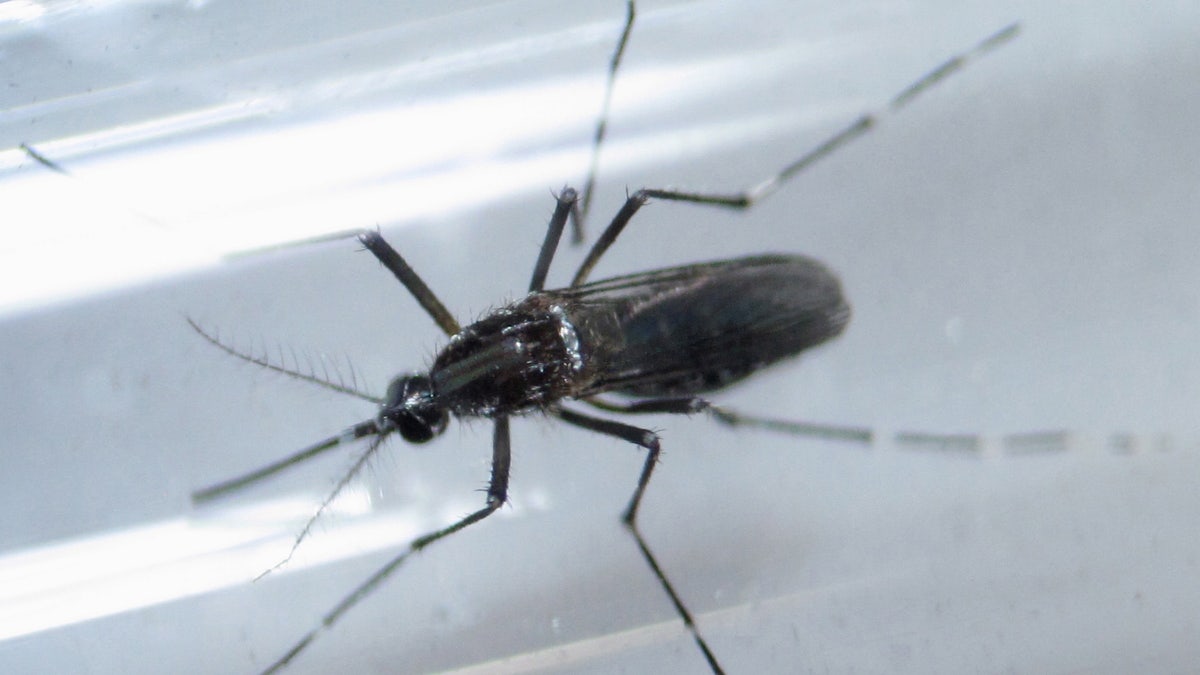
An Aedes aegypti mosquito is seen inside a test tube as part of a research on preventing the spread of the Zika virus and other mosquito-borne diseases at a control and prevention center in Guadalupe, neighbouring Monterrey, Mexico, March 8, 2016. (REUTERS/Daniel Becerril/File Photo)
DALLAS – Pregnant women should consider postponing travel to Brownsville, Texas, because of concerns about mosquitoes there spreading the Zika virus, federal health officials said Wednesday.
The warning from the Centers for Disease Control and Prevention advises doctors to tell pregnant women and their sex partners to take precautions and to consider putting off travel to the city while the advisory is in place. It comes after five cases of Zika virus infection spread locally were recently diagnosed in people living near each other in the city located on the state's border with Mexico.
"We're recommending pregnant women not travel to Brownsville, and if they do travel to that area, to ensure that they avoid mosquito bites and they avoid the risk of sexual transmission," the CDC's Dr. Denise Jamieson said. "And that when they return from the area, that they undergo testing for Zika virus infection."
Florida is the only other state in the U.S. that has had homegrown Zika cases. The CDC has issued a similar warning there in Miami-Dade County.
The CDC notes that temperatures in the Brownsville area are still conducive to mosquito breeding, so the risk of more cases can't be ruled out.
Zika is primarily transmitted to humans by mosquitoes that have previously bitten an infected person, though sexual transmission can also occur. Most infected people don't have symptoms, but for those who do, it's usually a mild illness with fever, rash and joint pain.
But the disease is especially dangerous to pregnant women because it can cause severe birth defects, including babies born with unusually small heads. None of the people with homegrown Zika cases in Texas is pregnant, officials said.
Texas Department of State Health Services officials on Wednesday recommended that all pregnant Brownsville residents and those who have traveled there on or after Oct. 29 be tested for Zika.
"The recommendation is now to test pregnant women more broadly in that area," department spokesman Chris Van Deusen said.
The CDC says that people living in the Brownsville area should be counseled on the possible risk of Zika before getting pregnant.
The locally transmitted Florida cases were detected over the summer. Until then, all U.S. cases had been connected to people traveling to countries with outbreaks, mostly in Latin America and the Caribbean.
Health officials note that because areas of active Zika transmission have been reported in Mexico near the U.S. border, they've been recommending since last year that pregnant women shouldn't travel to any low-elevation area in Mexico, where the virus-spreading mosquitoes thrive.








































